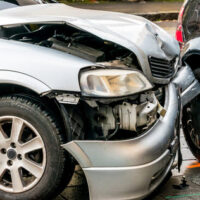You Can Sue Parties That Aren’t Directly Involved in Your Accident

When someone injures us out of carelessness or negligence, we often think of suing the party that was directly negligent, as we obviously should. For example, if someone hits you in a car, suing the driver is a pretty obvious legal strategy. However, there are some situations where the driver of a car may not be the only party to sue, and in fact, you may be able to sue someone that had nothing to do with your accident—at least, not directly.
Vicarious Liability
There are various legal theories where a party can be held liable for the negligence of someone else. Most commonly known is the vicarious liability that a parent may have for anything that a minor child may do that injures someone, or the vicarious liability that a large company may have for the carelessness of, say, one of their truck drivers.
Employer-employee relationships often give rise to this kind of liability, especially when the employer fails to do background checks, or fails to supervise the employee that causes injury. A well known example of this is the lawsuit against Best Buy, brought by the family of an elderly woman who was killed by delivery people contracted out by Best Buy to deliver their products.
Doing Background Checks
Trucking companies that fail to investigate whether their drivers have poor driving records before hiring them, or day care companies that fail to make sure that employees working with kids have clean criminal records, all can be held liable if their employees do something to harm others. The theory in these cases is that had the employer known about the employee’s history, the employer would not have allowed the employee to be in a position to hurt someone else.
In many cases, the mere fact that the employee was working in the course and scope of his or her employment is enough to hold the company liable for the employee’s negligence. The victim may not have to show that the employer did anything wrong (such as fail to do a background check).
Negligent Entrustment
Similar to these kinds of cases are negligent entrustment cases. The mere act of allowing—or negligently “entrusting”—someone else with a car, or another type of item, can make that person liable for damages to the victim.
For example, a parent that allows a teenage son to use a vehicle, or a family member that allows another family member to access a gun or weapon can all be liable if the person causes injury to another.
The parent or supervisor that “entrusts” the other person with the object that caused harm need not have done anything actively negligent, such as fail to do a background check or have actual knowledge that someone is careless, reckless, or a risk. Simply trusting certain items to others, can expose the owner of the item that causes harm to liability for injuries.
The Tampa personal injury attorneys at Barbas, Nuñez, Sanders, Butler & Hovsepian can help you if you are injured by the carelessness, negligence, or actions of any other person or business. Call us today to discuss obtaining damages after any accident. Schedule a consultation today.
Resource:
investopedia.com/terms/v/vicarious-liability.asp
https://www.barbaslaw.com/coefficient-of-friction-and-slip-and-fall-accidents/




